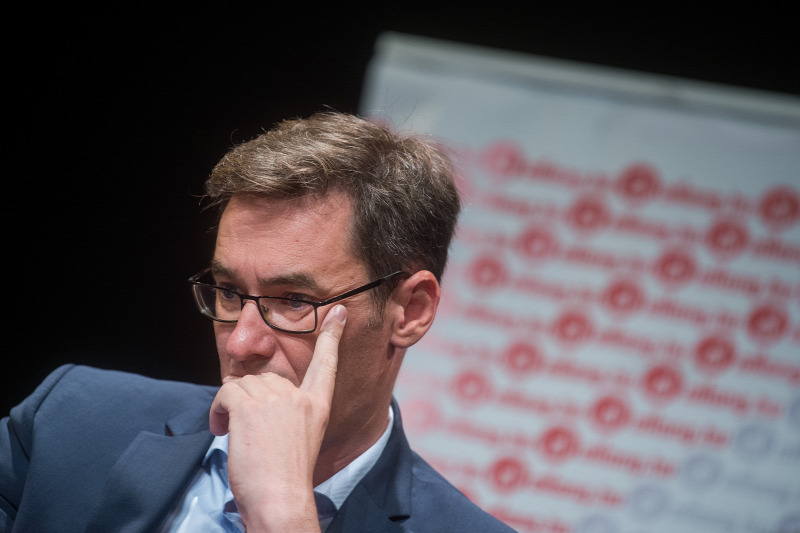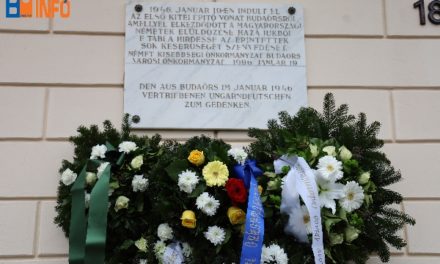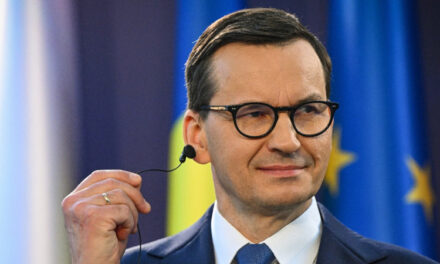The capital "pays more than HUF 100 million in public funds every year to prevent Hungary and Budapest from receiving hundreds of billions of HUF annually," wrote the Prime Minister's Secretary of State for European Union Development in an open letter to the mayor on Tuesday.
Ágostházy Szabolcs responded to Gergely Karácsony's letter from the Prime Minister Gergely Gulyás regarding the recovery plan. The state secretary drew attention to the fact that the government developed Hungary's Recovery and Resilience Plan taking into account the interests of the entire country and the EU rules, the capital's leadership tried to get involved in the social consultation process of the recovery plan only in the weeks before the plan was submitted,
even though he had been invited to participate by the government several times before".
He added: Almost a year ago, in the summer of 2020, Minister László Palkovics - as the minister responsible for European Union developments - asked the mayor in a letter to formulate his proposals, but his request remained unanswered. After that, on December 14, 2020, as part of the social consultation of the Hungarian recovery plan, Ágostházy Szabolcs, as state secretary, asked the Association of Budapest Municipalities led by Karácsony Gerely to participate in the consultation process.
However, they did not take advantage of the opportunity to comment and make proposals until the end of March, even though countless interest groups, civil organizations, and municipalities had already done so by then."
- remarked the state secretary.
He drew attention to the fact that, as referred to in the mayor's letter, the working group established after the March 25 meeting of the Metropolitan Public Development Council started work almost immediately, which was followed by further consultations at the expert level. "The staff of the State Secretariat provided all the information and methodological assistance to the Mayor's colleagues so that, despite the delay not caused by the government's fault, they could make meaningful comments on the Recovery and Resilience Plan," wrote the State Secretary.
Ágostházy Szabolcs noted: in the capital's subsequent proposals, the often multibillion-dollar items were made by the mayor's colleagues
they tried to support it with the average length of an SMS".
The lack of professional elaboration of the capital's plans and their complete lack of numerical support made even the substantive consideration of the proposals extremely difficult, the politician pointed out.
He reminded: Budapest is the country's most developed city, it stands at 151 percent of the average level of development in the European Union, while several development areas in Hungary are close to two-thirds of the EU average. The capital's local government is the richest local authority in the country, and in comparison, the capital's proposals "intended to use almost a third of the resources of the Hungarian recovery plan in Budapest, without caring about the needs of the part of Hungary outside the capital".
It is probably a consequence of the haste that a significant part of the capital's package of proposals does not fit the conditions of the EU's Recovery and Resilience Instrument. The elements of the alternative proposal of the capital, which correspond to the EU regulatory framework, were already included in the plan submitted by the government for public debate - indicated Szabolcs Ágostházy.
He added that this is precisely why they do not understand what is preventing Mayor Gergely Karácsony from supporting the Hungarian Recovery and Resilience Plan.
Unless you simultaneously spend HUF 112 million per year from public money for Benedek Jávor, as the capital's representative in Brussels, to work to discredit the government in general, in the specific case to undermine the country's negotiating position by working against Hungarian interests, and to try to prevent the eight months of constructive preparation the adoption of a development plan completed during work"
he noted. He emphasized: the capital "pays more than HUF 100 million in public funds every year in order to prevent Hungary and Budapest from receiving hundreds of billions of HUF annually".
The government developed the recovery plan taking into account the interests of the entire country and the EU rules, taking into account the opinions of the organizations involved in the partnership process, stressed Ágostházy Szabolcs. He reminded: the plan submitted by the government allocates 34.1 percent of the resources to health care, 20.4 percent to education and catch-up, 25 percent to the development of environmentally friendly transport, and the remaining part to renewable energy, water management and the circular economy. According to the government's plans, one fifth of the developments will take place in Budapest and the agglomeration, and in addition, numerous national-scale investments will serve the capital's development.
Despite the difficulties in cooperation with the capital, the government maintains its intention to provide several thousand billion HUF development resources from the domestic and European budgets for the development of Budapest and its agglomeration in the next EU budget period. A significant part of this will be spent on health investments, transport development of the capital and its agglomeration, economic development, innovation and education, as well as green developments and parks, the politician wrote in his open letter.
He added: they are asking the mayor to "not continue the decades-long bad practice of the left, and if he can no longer support Hungary's international advocacy, at least not try to hinder it, especially when the adoption of the recovery plan is also a guarantee of the capital's development".
Source: MTI OS / 888.hu
Photo: MTI/ZOLTÁN BALOGH













